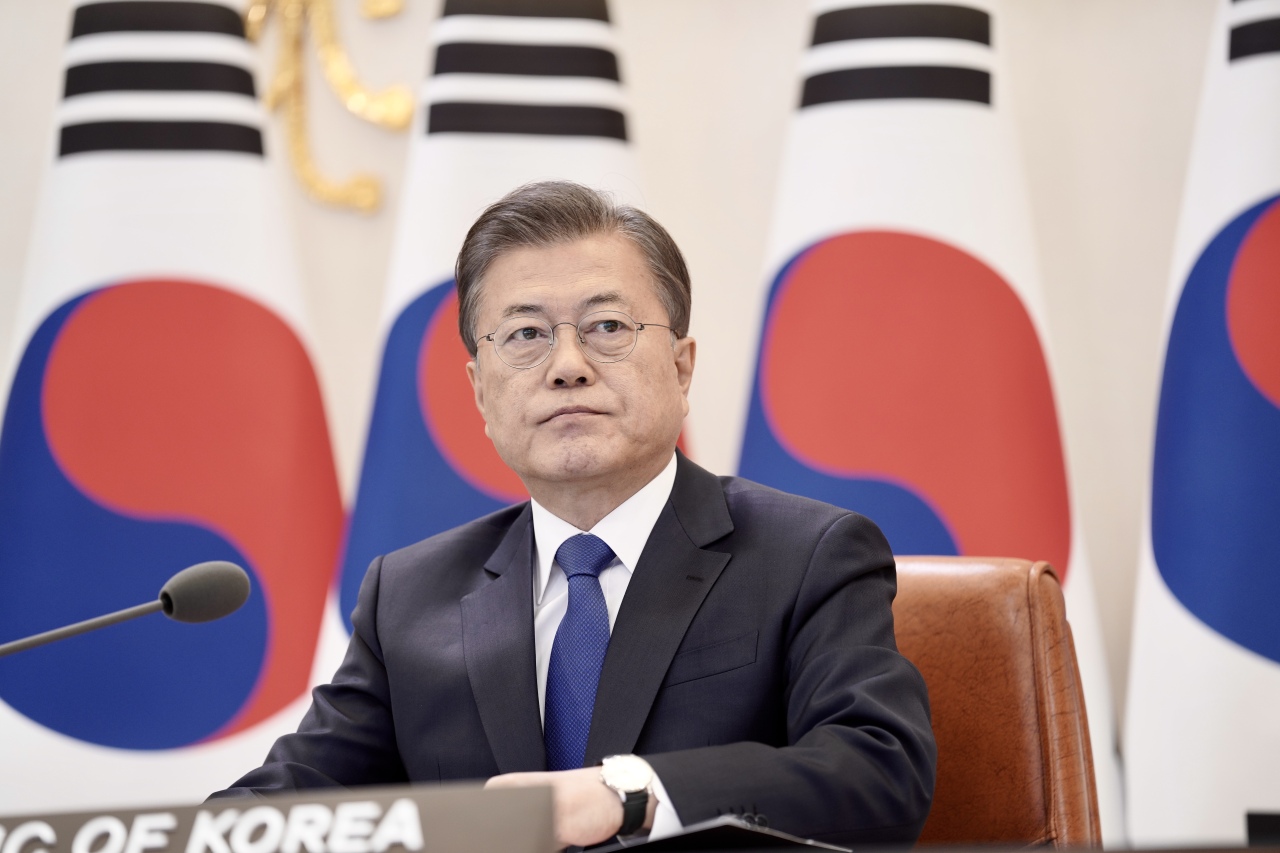Moon’s economic policy to gain momentum on ruling party’s victory
By Jung Min-kyungPublished : April 16, 2020 - 15:49

The ruling Democratic Party of Korea’s landslide victory in the latest national assembly elections is expected to work as a catalyst for President Moon Jae-in’s economic policy agenda -- including more emergency cash handouts and housing market regulations.
Thursday’s preliminary election results allowed the Democratic Party and its satellite Platform Party to secure 180 seats in the 300-member National Assembly, which is likely to expand the scope of the government's emergency cash payment program to all South Korean households receiving 1 million won ($815) each.
The Democratic Party's vow covers wider subjects compared with the government’s previous emergency cash payment program, which will pay families in the bottom 70 percent income bracket, with four-person households receiving around 1 million won. The payment may vary depending on the number of employed or self-employed in the family.
The Democratic Party said it would boost the size of the government-proposed second supplementary budget for this year from the current 7.6 trillion won to around 10.5 trillion won and add 2 trillion won drawn from local governments to secure a total of 13 trillion won, to achieve its new plan.
The plan is likely to materialize, but is projected to face some key hurdles from the main opposition United Future Party. The party has been on board with the plan of expanding the subjects of the program to all citizens, but claimed that the program should be funneled from the existing 2020 government budget of 512 trillion won, rather than the proposed second supplementary budget.
The Ministry of Economy and Finance has also been expressing hesitancy in expanding the subjects of the cash payment to all.
The 70 percent income-bracket standard set by the government came as a result of lengthy discussions that included assessment of urgency, effectiveness, fairness and fiscal space,” Finance Minister Hong Nam-ki said in a press briefing held Thursday.
The second supplementary budget was proposed Thursday, with the government saying that the money will be reallocated from parts of the existing budget for public projects. The aid package is worth 9.7 trillion won in total.
The nation’s housing market is expected to undergo another phase of change with the ruling party’s win, as the government’s tough real estate regulations dubbed the Dec. 16 measures, announced late last year, projected to gain further momentum.
The measures, which fundamentally aim to cool down the nation’s heated real estate market, includes plans to raise the comprehensive real estate tax rate for owners of multiple properties coupled with stricter lending rules for home purchases.
Those who own multiple properties in bubble-prone zones have to pay real estate taxes as high as 3.2 percent.
Analysts say that some multiple property owners who hoped the measures would be eased through the election may attempt to sell their properties in disappointment.
“Among multiple property owners, those burdened with large mortgages will be pressured to sell due to heightened real estate tax rate, even in times of low interest rate,” an analyst at a major local real estate industry tracker Real Estate 114 said.
By Jung Min-kyung (mkjung@heraldcorp.com)












![[Today’s K-pop] BTS pop-up event to come to Seoul](http://res.heraldm.com/phpwas/restmb_idxmake.php?idx=644&simg=/content/image/2024/04/17/20240417050734_0.jpg&u=)





![[KH Explains] Hyundai's full hybrid edge to pay off amid slow transition to pure EVs](http://res.heraldm.com/phpwas/restmb_idxmake.php?idx=652&simg=/content/image/2024/04/18/20240418050645_0.jpg&u=20240418181020)

![[Today’s K-pop] Zico drops snippet of collaboration with Jennie](http://res.heraldm.com/phpwas/restmb_idxmake.php?idx=642&simg=/content/image/2024/04/18/20240418050702_0.jpg&u=)